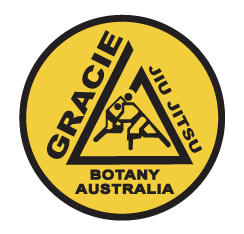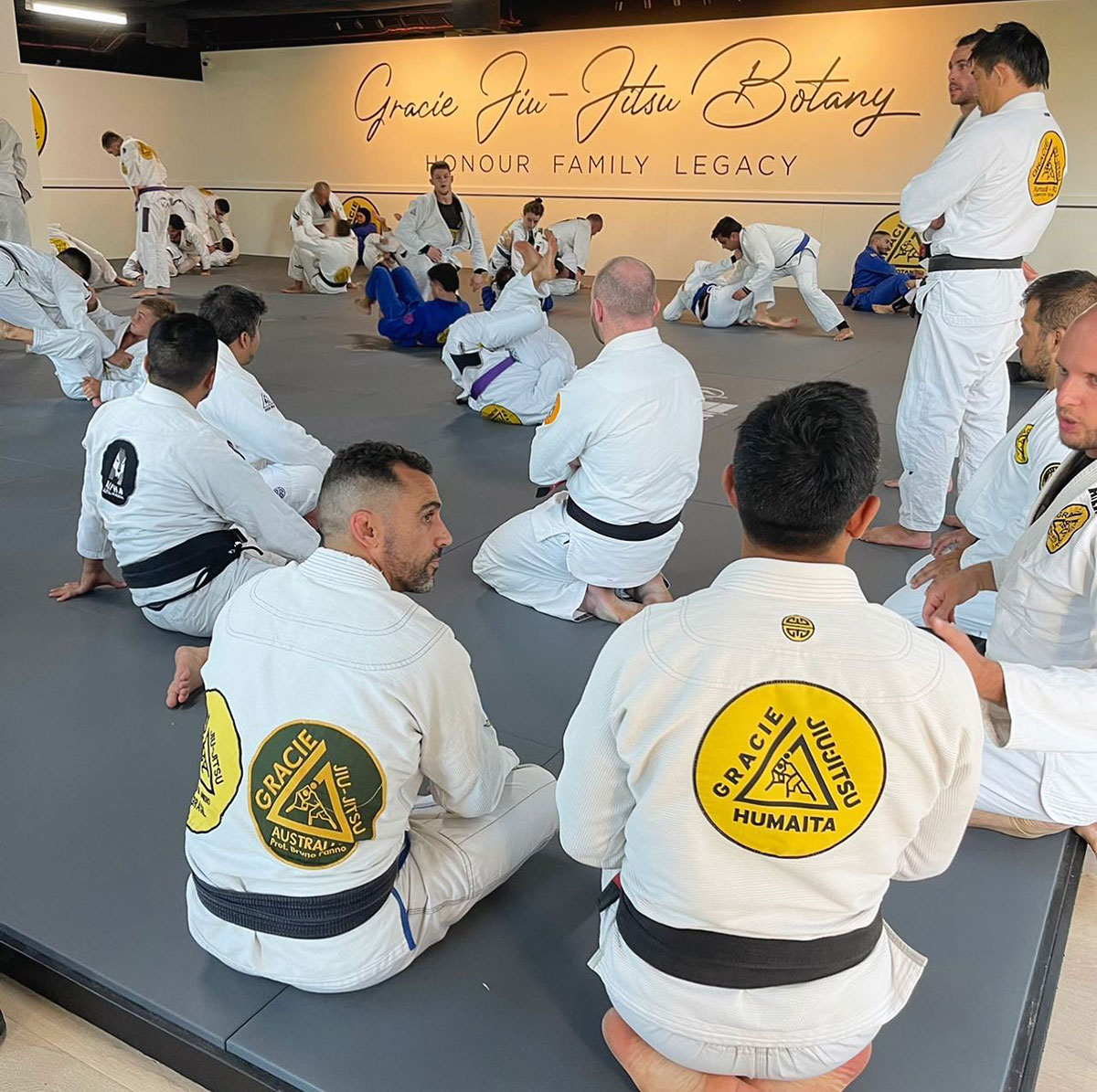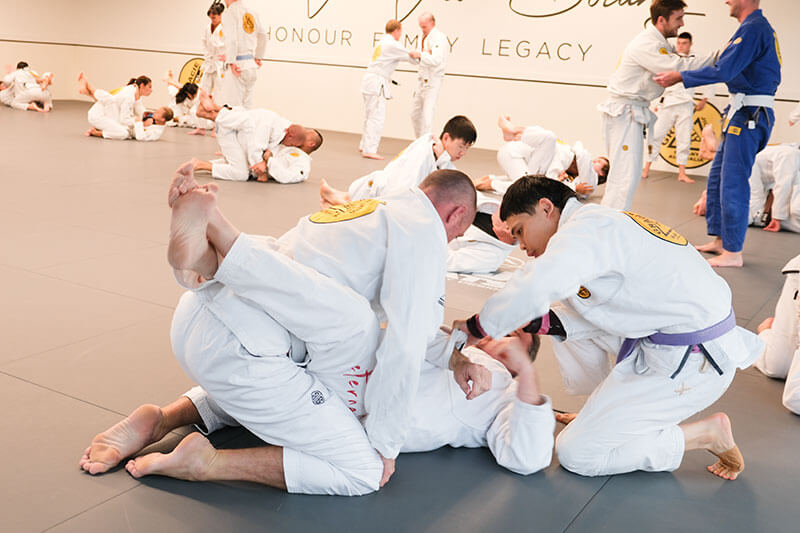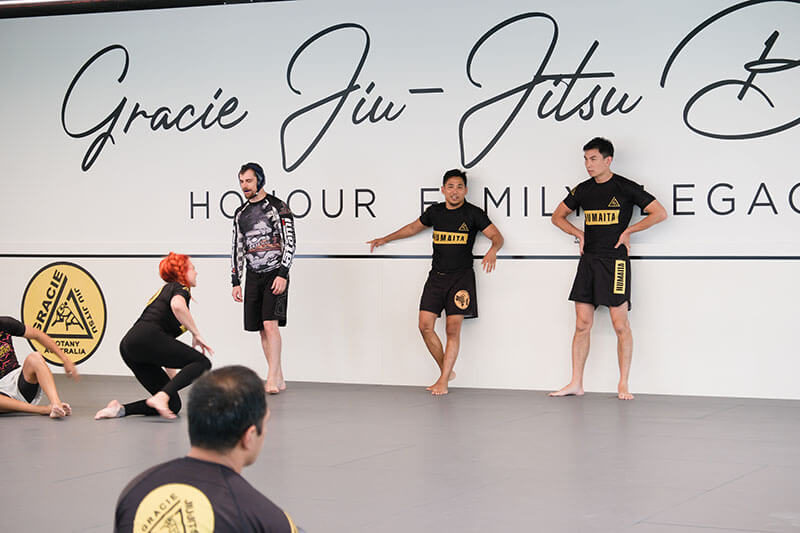A lot of the people that train martial arts do so because of its wonderful benefits to your body. Often overlooked, however, is how effective martial arts like Brazilian Jiu-Jitsu are for your mind.
BJJ makes you feel better and makes you tougher. That’s true physically, thanks to exercise endorphins and self-defence skills. It’s equally true for your head.
Practicing martial arts has a meditative quality, since you have to focus your mind entirely on the objective at hand. (That’s especially true for BJJ, since it’s such a spar-heavy discipline.) Just as importantly, training martial arts teaches perseverance.
These are two of several ways that martial arts do wonders for your mental health, and it’s part of why BJJ is so valuable to train beyond fitness and self-defence reasons.
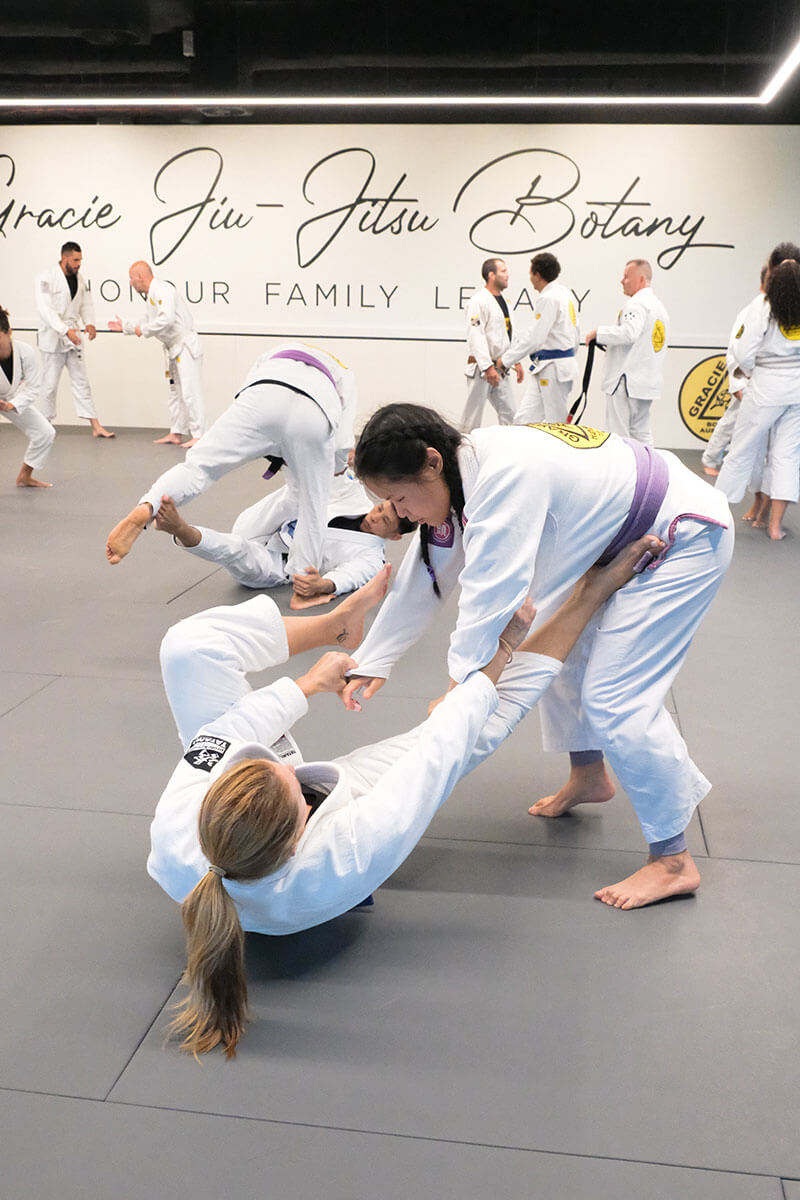
Hold up, what’s BJJ?
Gracie Botany is a Jiu-Jitsu academy located in Sydney’s Eastern Suburbs, near Matraville. We’re a welcoming academy that runs classes six days a week, including kids and women-only sessions.
BJJ is a martial art that focuses entirely on grappling. There are no punches or kicks, unlike disciplines like Karate or Kung Fu. Compared to Wrestling and Judo, which are also exclusively grappling disciplines, Brazilian Jiu-Jitsu focuses on ground-based combat.
Why? The point of Jiu-Jitsu is to use leverage and timing to subdue an opponent, rather than strength and power. That’s more easily achieved on the ground. Read more about the roots of BJJ here.
For the purposes of this discussion though, a key element of BJJ is how spar-intensive it is. If you’re an adult, you’ll spar (or “roll”, as we say) at the end of every session from your very first or second class. Kids spar too, once they’re old enough and comfortable enough to safely do so.
Because BJJ is all about grappling, the risk of copping a hard blow to the head is greatly diminished. Because it focuses on ground grappling, the risk of takedown-related injury is also minimized. That means that, once you’re skilled enough, you can spar at 100% intensity without significantly heightening injury risk.
With that out of the way, let’s get back to mental health.
Martial arts are meditative. I just mentioned that you often roll at high intensity in BJJ. Little in life centres your focus like someone trying to choke or armbar you. That means training forces you to focus intently on what you’re doing, making it similar to meditation. The stressors and struggles of life tend to disappear on the mats, making BJJ an effective way to reset your mental health.
Learn to breathe. Of all the healthy activities you can do, Jiu-Jitsu is arguably closer to Yoga than other martial arts. Proper breathing is at the centre of both. In Jiu-Jitsu there’s a mantra that could just as easily be applied to yoga: Get comfortable being uncomfortable.
It may sound outlandish, but proper breathing is crucial to mental health. Take 10 quick shallow breaths in and out and you’ll immediately feel a stress response; take a few deep, mindful breaths into your diaphragm and you’ll feel your body calm down. You’ll spend a lot of time in uncomfortable positions on the BJJ mats, and you’ll quickly learn that trying to spasm out doesn’t work.
The solution on the mats, as in life, is to take a deep breath, slow down and figure out how to handle the situation.
BJJ teaches perseverance. Training Jiu-Jitsu is satisfying, but it’s also difficult. There’s a reason why sparring is such a crucial element of BJJ: Because you need to learn what techniques work for you, and which don’t. Just like life, Jiu-Jitsu is a slow process of trial and error. Just like life, there will be a lot of errors.
Nothing worth having comes easy. But Jiu-Jitsu teaches everyone, especially kids who train from a young age, that you can do things you once thought impossible if you put in the work. It’s a lesson learnt on the mats that applies to situations everyone faces in their lives outside the academy.
Self confidence. Self confidence is often the reward you get from perseverance. If you train in martial arts, doubtful thoughts often cross your mind. You’ll think you’ll never get that next belt, you’ll never be able to perform a certain technique or escape a certain training partner’s mount. Train long enough, though, and you’ll find yourself achieving all the things that voice in your head said you couldn’t.
As I said above, Jiu-Jitsu teaches perseverance. That’s an attribute. Self confidence is a feeling. After you go through the process of working hard to achieve something enough times, you begin to feel that you’re capable of achieving more. That’s among the best gifts anyone could give themselves.
If you’re interested in challenging yourself by taking up martial arts, come into Gracie Botany for a free trial.
